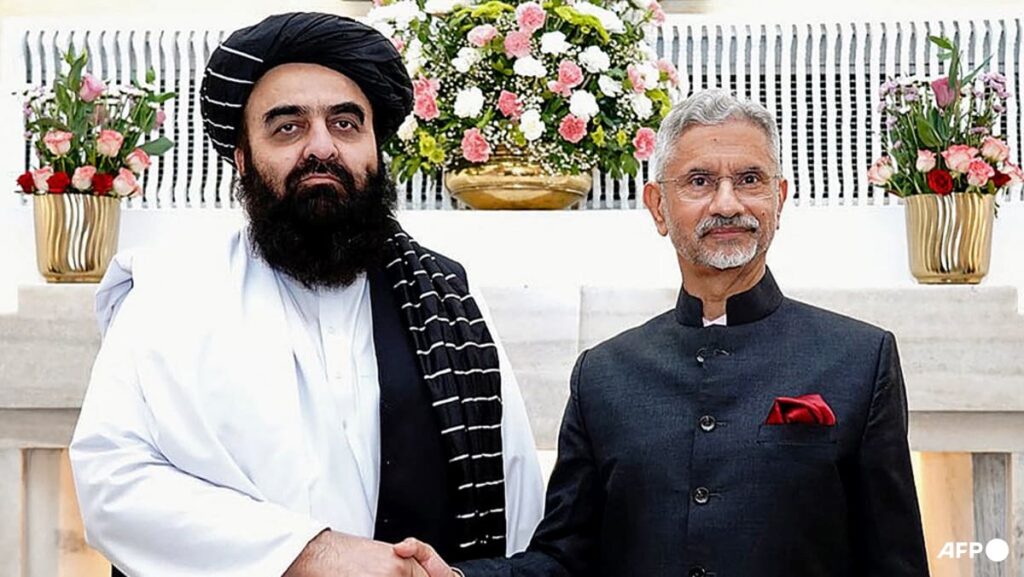LEGITIMACY VS REALITY
With its Indian welcome, the Taliban regime has edged closer to the wider international legitimacy it desires as the de facto rulers of Afghanistan.
Thus far, the regime has only been recognised by Russia. Afghanistan’s seat at the United Nations is still occupied by the representative of the previous government that collapsed as the US ignominiously withdrew in 2021, leaving the Taliban to sweep back to power after being kicked out by the US in late 2001 in reprisal for harbouring Osama bin Laden, mastermind of the Sep 11 terrorist attacks in America that year.
Several countries maintain diplomatic missions in Kabul, but have still not officially recognised the unelected Taliban as the legitimate government.
New Delhi’s approach has evolved to recognise that the Taliban are a reality, and India will deal with the regime, extending aid and investment and skilled manpower, while stopping short of official recognition, preferring to follow the lead of the United Nations.
The Taliban have their own cards to play. Other countries are, or may soon, enhance their engagement even if only to hedge – as is part of India’s agenda as well – against Afghanistan again becoming a hotbed for militant and terrorist groups. China and Russia, for example, worry respectively about Uighur and Uzbeki militants finding a training and staging ground as others have before in Afghanistan.
Certainly, hosting the Taliban was, to many, a bad look for India.
“I hang my head in shame when I see the kind of respect … given to the … Taliban by those who beat the pulpit against all kind of terrorists,” the renowned Indian poet and lyricist Javed Akhtar posted on X. And the Taliban minister drew wide backlash for not inviting any women journalists to his first press conference in New Delhi; possibly in response, female journalists were invited to a second one.
But re-engagement gives India the advantage of being back with a presence in Afghanistan, cultivating goodwill and with eyes on the ground watching militant and terrorist groups – and Pakistan.
At the same time, India is not naive enough to take whatever the Taliban say at face value. But re-engagement comes at a relatively low cost; India shares cultural links, but not a land border with Afghanistan.
On their part, the Taliban know that Pakistan, which is beset with problems not least of which is the resurgent TTP, does not have the money to rebuild Afghanistan.
Also, notwithstanding that Pakistan is also an Islamic nation with which it has brotherly ties, the Taliban harbour an element of resentment against it for manipulating and taking Afghanistan for granted. In that context, engaging with India balances a Pakistan whose security establishment tries to control outcomes in Afghanistan.
https://www.channelnewsasia.com/commentary/india-taliban-afghanistan-pakistan-relationship-ties-5406051


